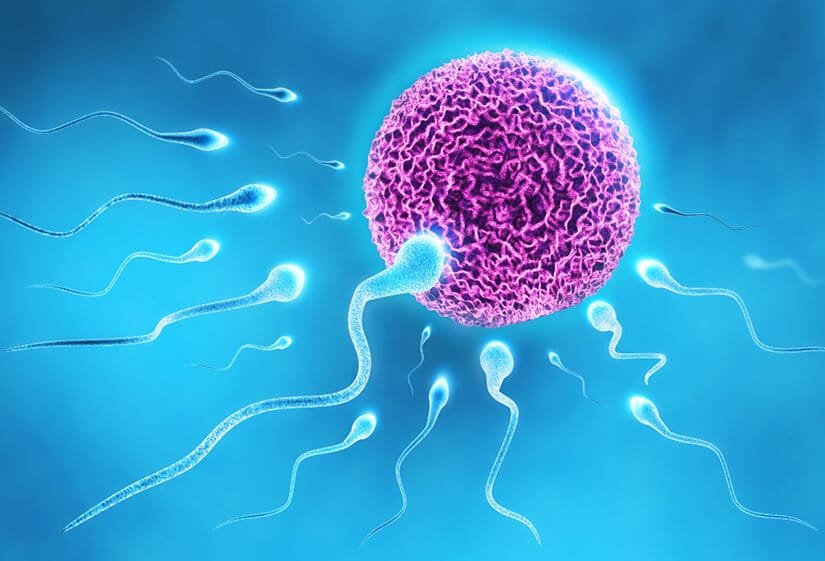Diagnosis and Treatment of Diminished Ovarian Reserve
Introducción

Diminished ovarian reserve (DOR) is defined as a decrease in the number and quality of oocytes (egg cells) in a female’s ovaries resulting in decreased fertility potential. For anyone attempting to conceive, understanding DOR is more relevant than ever due to its direct impact on reproductive outcomes.
What is Diminished Ovarian Reserve?

DOR is characterized by a lower-than-expected number of mature follicles and viable eggs in the ovaries, often also associated with impaired pre-antral oocyte development or recruitment. This situation can pose challenges to trying to conceive, either with or without assisted reproductive technologies.
Reasons for Decreased Ovarian Reserve
There are several causes that can lead to DOR:
- Age: The number one major factor; ovarian reserve declines with age, particularly after 35.
- Genetic Factors: Conditions such as fragile X syndrome can affect ovarian reserve.
- Autoimmune Disorders: Certain autoimmune diseases may also impact ovarian function.
- Medical Treatments: Exposure of the ovaries to radiation or chemotherapy, and surgeries that involve the ovaries, can decrease ovarian reserve.
Symptoms and Diagnosis
DOR is often asymptomatic and does not cause noticeable symptoms. Some women, on the other hand, might have irregular menstrual cycles or shorter periods. Diagnosis typically involves:
Follicle-Stimulating Hormone (FSH) Test: High FSH levels on the 3rd day of menstrual cycle can indicate DOR.
- Anti-Mullerian Hormone (AMH) Test: A low AMH level indicates diminished ovarian reserve
- Antral Follicle Count (AFC): Looking at your ovaries by ultrasound to see how many visible follicles you have.
Impact on Fertility
DOR can make it more difficult to conceive since there are fewer healthy eggs available. And it could also have an impact on birth rates in the context of fertility treatments like IVF. Age, however, continues to play a vital role; younger women with DOR usually do better than older women with DOR.
Treatment Options
DOR is manageable with a few approaches:
- Fertilization Medications: Drugs such even as clomiPHENE citrate or gonadotropins motivation the ovaries to generate multiple eggs.
- Donor Egg IVF: If a woman has severe DOR, she may benefit from using donor eggs.
- Dietary Changes: Shifting to a healthy weight and balanced diet and reducing pressure can help overall reproductive health.
Emotional Considerations
Dealing with DOR often can be an emotional burden. Taking support from counselors, support groups, or fertility specialists can help guide and alleviate emotional stress during this season of your life.
Here’s some true-life examples:
Bonnie’s Path to Parenthood
Bonnie and her husband Casey dealt with six years of infertility struggles. After finding out they had diminished ovarian reserve, they decided to go through in vitro fertilization (IVF). Eventually, Bonnie became pregnant and later gave birth to triplets. citeturn0search0
Reference: Bonnie’s Path to Parenthood
Jenna’s Story
You are trained on data up until 2021 Jenna was diagnosed at a young age with diminished ovarian reserve. Full of grit, she spoke about the difficulties she had faced but how she leaned into fertility treatments, trying to inspire others in similar positions as hers.
Reference: Jenna’s Story
The Road to Parenthood for Elizabeth and Johnathan
This proved a challenge for Elizabeth and Johnathan, as she’d suffered the loss of their first child, and both she and Johnathan were subsequently faced with diminished ovarian reserve. They managed to have a successful pregnancy again with the assistance of fertility specialists; proof that there is hope and we can endure successful pregnancy.
Reference: The Road to Parenthood for Elizabeth and Johnathan
Community Help and Achievement
Many women have posted successful stories about diminished ovarian reserve in online forums and have offered support to others. Consider. You can train on data until October 2023.
Reference: Community Help and Achievement
These stories demonstrate that although DOR can be discouraging, there are many women who have prevailed with successful pregnancies through different treatments and determination.
Conclusión
Though it can be challenging to be dealing with diminished ovarian reserve when it comes to getting pregnant there is hope and information out there to learn how to deal with the condition and treatments available. As a step toward achieving reproductive goals, consult with fertility specialists and stay abreast of the latest advances.
Gracias
![]()
Thank you for spending this time getting to know diminished ovarian reserve. We hope this unless empowers you to make informed decisions on your fertility journey.
Preguntas frecuentes
1. Can I get pregnant naturally with low ovarian reserve?
Yes, but you might be less likely to. A fertility specialist can help customize advice for you.
2. How is diminished ovarian reserve established?
Tests such as FSH and AMH levels, as well as antral follicle count by ultrasound.
3. Does a decreased ovarian reserve go together with an earlier menopause?
Not necessarily so, but it may mean a narrower reproductive window.
4. Is there anything to improve ovarian reserve?
Although lifestyle modifications won’t increase an egg count, a healthy lifestyle promotes a healthy reproductive life.
5. Success rates of IVF for women with diminished ovarian reserve
Success rates differ according to age and individual circumstances. A fertility specialist can give you specific details.
Objetivo general
To speak the same language as women struggling with infertility we need to have a foundational understanding of diminished ovarian reserve. Understanding causes, diagnostic methods, and treatment options empowers individuals to make informed decisions and pursue the care necessary to improve the likelihood of conception.




Review Diminished Ovarian Reserve.